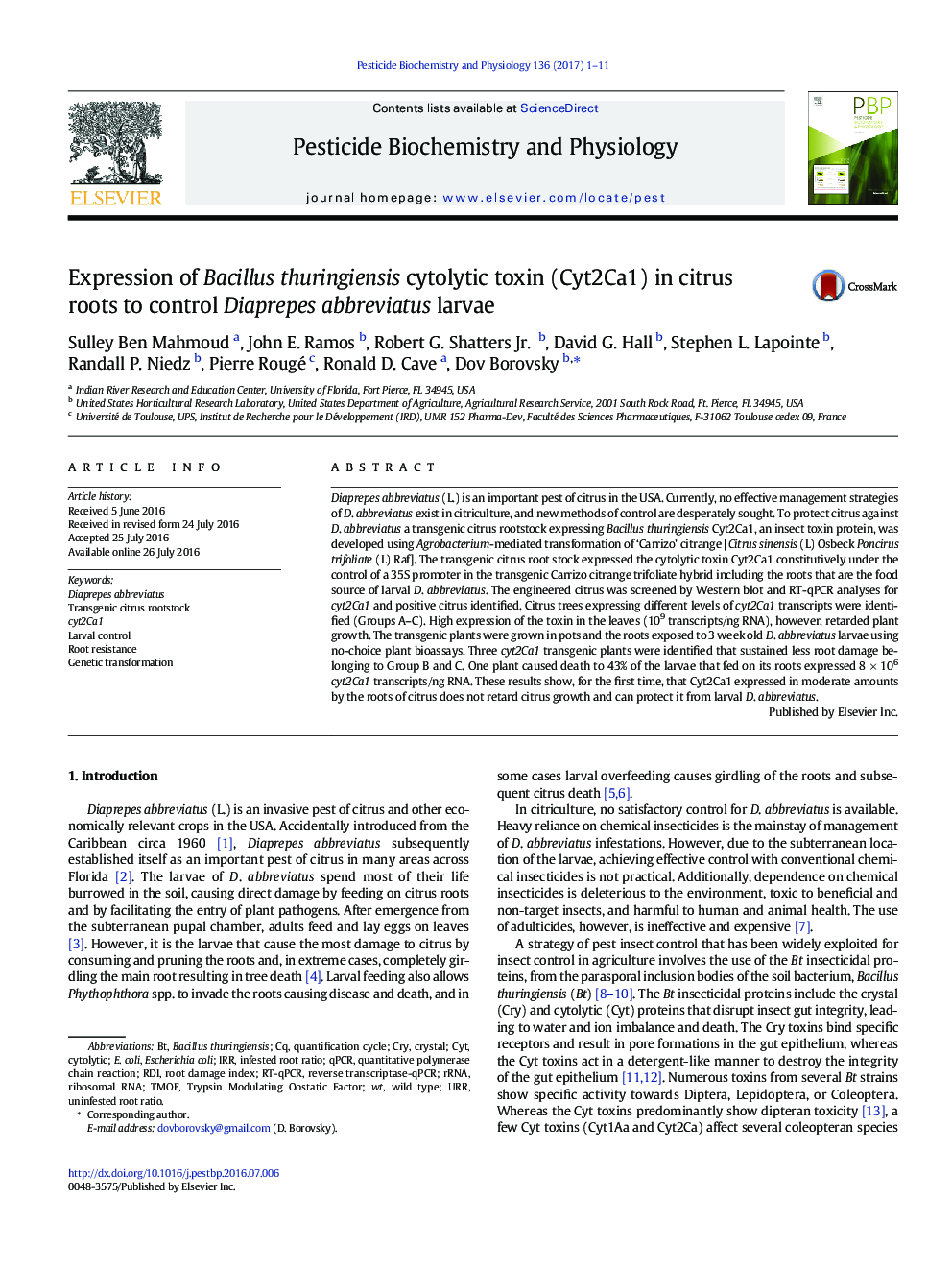| کد مقاله | کد نشریه | سال انتشار | مقاله انگلیسی | نسخه تمام متن |
|---|---|---|---|---|
| 5514951 | 1541763 | 2017 | 11 صفحه PDF | دانلود رایگان |

• Transgenic citrus plants expressing Bt toxin cyt2Ca1
• Diaprepes root weevil (D. abbreviatus) resistant citrus
• 3D protein modeling
• Molecular characterization of cyt2Ca1 citrus
Diaprepes abbreviatus (L.) is an important pest of citrus in the USA. Currently, no effective management strategies of D. abbreviatus exist in citriculture, and new methods of control are desperately sought. To protect citrus against D. abbreviatus a transgenic citrus rootstock expressing Bacillus thuringiensis Cyt2Ca1, an insect toxin protein, was developed using Agrobacterium-mediated transformation of ‘Carrizo’ citrange [Citrus sinensis (L) Osbeck Poncirus trifoliate (L) Raf]. The transgenic citrus root stock expressed the cytolytic toxin Cyt2Ca1 constitutively under the control of a 35S promoter in the transgenic Carrizo citrange trifoliate hybrid including the roots that are the food source of larval D. abbreviatus. The engineered citrus was screened by Western blot and RT-qPCR analyses for cyt2Ca1 and positive citrus identified. Citrus trees expressing different levels of cyt2Ca1 transcripts were identified (Groups A–C). High expression of the toxin in the leaves (109 transcripts/ng RNA), however, retarded plant growth. The transgenic plants were grown in pots and the roots exposed to 3 week old D. abbreviatus larvae using no-choice plant bioassays. Three cyt2Ca1 transgenic plants were identified that sustained less root damage belonging to Group B and C. One plant caused death to 43% of the larvae that fed on its roots expressed 8 × 106cyt2Ca1 transcripts/ng RNA. These results show, for the first time, that Cyt2Ca1 expressed in moderate amounts by the roots of citrus does not retard citrus growth and can protect it from larval D. abbreviatus.
Figure optionsDownload high-quality image (173 K)Download as PowerPoint slide
Journal: Pesticide Biochemistry and Physiology - Volume 136, March 2017, Pages 1–11